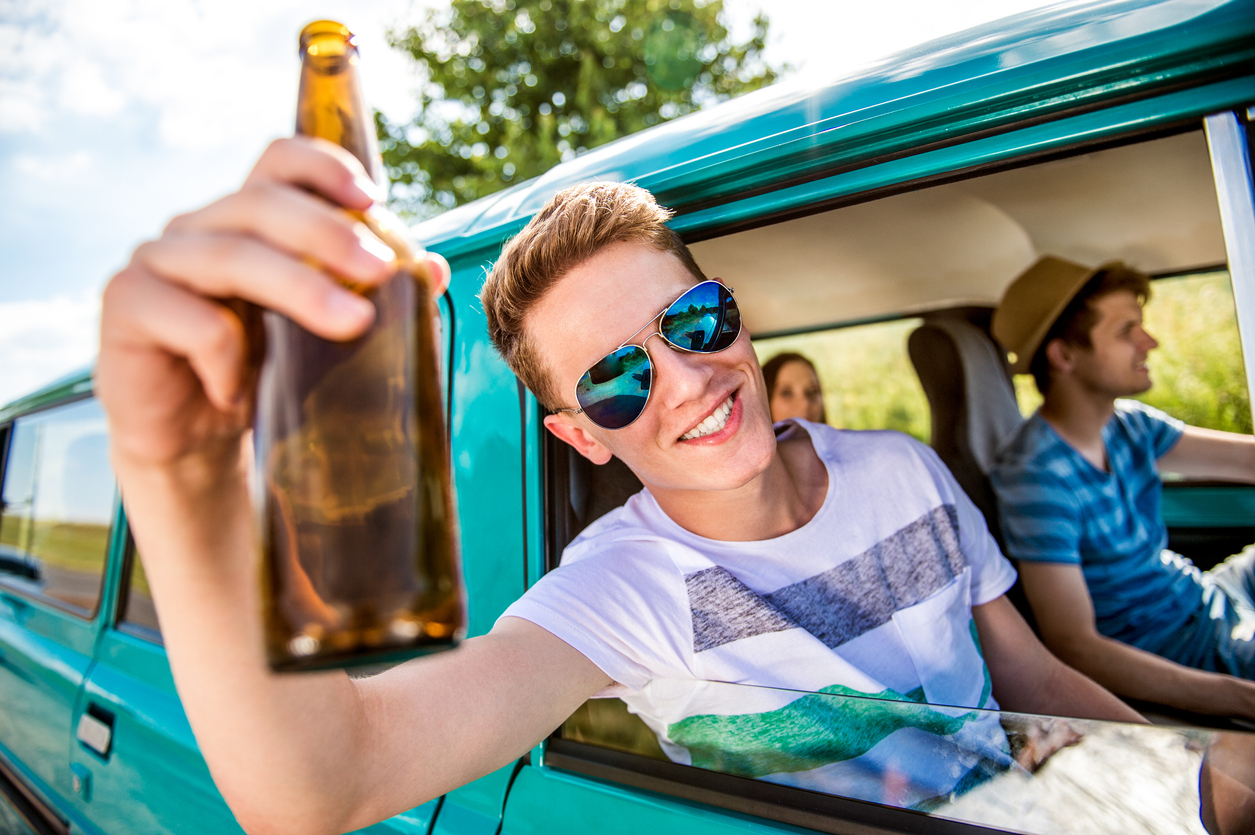
Excellent article in the Tri-City Herald addresses the law regarding vehicle passengers with alcohol. In other words, what if you’re a passenger found drinking alcohol in a car, but your driver has not had a drop? How can you expect police to react? Here’s what the law says.
WASHINGTON OPEN CONTAINER LAWS
Under RCW 46.61.519, it is a traffic infraction to drink alcohol in a vehicle on the highway. Even if you aren’t actively drinking, it’s still illegal. You cannot have an open container with an alcoholic beverage in a vehicle on Washington highways.
What counts as an open container? The state law describes it as “a bottle, can, or other receptacle containing an alcoholic beverage if the container has been opened or a seal broken or the contents partially removed.”
Passengers with an open container will be responsible for this infraction, not the driver. But it is a primary violation, meaning you can get pulled over for open containers. Police will pull over cars exhibiting concerning behaviors.
Concerning behaviors include speed, following too closely, impaired and distracted driving. But other infractions, like passengers drinking or smoking in the car, are considered concerning as well.
Additionally, you cannot keep an open container in the car unless it is kept somewhere not normally occupied by passengers, like the trunk. This means opened drinks cannot be kept in the glove or utility compartment “for later.” This infraction falls on the registered owner of the car, or the driver if the registered owner is not present.
It is an additional infraction to try and disguise an alcoholic beverage in order to get around this state code. These traffic infractions come with a fine of $136.
If minors are involved in any of the aforementioned infractions, there is potential for an additional charge for a Minor in Possession of Alcohol. This is assessed on a case-by-case basis, according to Thorson.
OPEN CONTAINER LAW EXCEPTIONS
There are some exceptions to this, however. The code does not apply for open containers:
- In public services commercially chartered for group use, like a party bus
- In the living quarters of motors homes or campers
- With passengers in a licensed for-hire vehicle (not rideshares), like a limousine
- When a privately-owned vehicle is driven by a licensed employee under normal work conditions, like a cart girl
As you can see, there aren’t very many exceptions to the laws about open containers. As we’ve seen, the most common one is the outside the passenger area exception. If the open container is in a part of the car that is inaccessible to passengers, it won’t get you in trouble. Generally, this means the trunk.
Please contact my office if you, a friend or family member are charged with DUI, Reckless Driving or any other crime. Hiring an effective and competent defense attorney is the first and best step toward justice.






